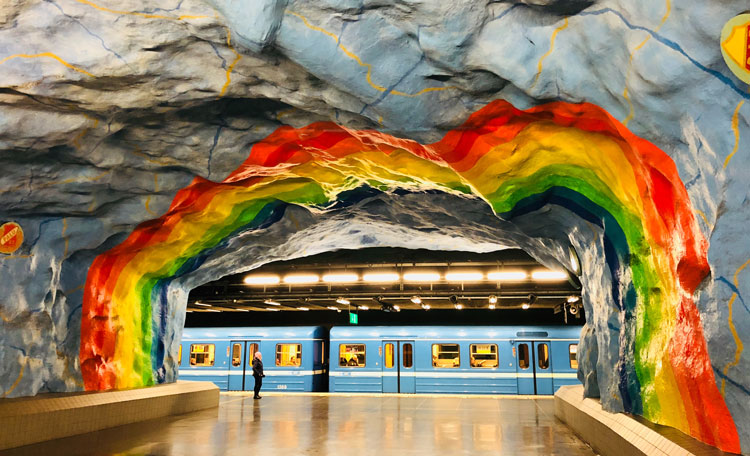On 5 June, Kazakhstan conducted a referendum seeking approval for massive amendments to its constitution to readjust the powers of state institutions and ensure the democratisation of political processes. 77.18% of citizens welcomed the amendments to the Constitution of Kazakhstan. Deep structural changes in Kazakhstan are ambitioned to promote competition in the economy, improve the nation’s investment climate and business environment, reduce the state’s role in the economy, improve living standards, introduce innovations, and accelerate the transition to a low-carbon economy.
Despite continuing the Russia-Ukraine conflict and dissipation of uncertainty, presently we are observing that the Kazakhstani commercial real estate market is recovering at a high pace. This applies to all types of commercial real estate.
The prime industrial sector has continued showing that it is one of the most resilient industries, the demand for high-quality storage facilities remains robust and investors are seeking new opportunities.
In the office real estate market tenants are looking for quality premises, which are in shortage on the market. In the Almaty market alone, over the first quarter of 2022, the vacancy rates for class A office facilities have decreased from 6.1% to 5.3%. In class B office facilities, the vacancy rates have dropped from 5% to a historic 3.5-year low of 4%. Dropping vacancy signifies that the office market is moving to a landlord-driven phase.
In June 2022, the annual inflation rate in Kazakhstan spiked to 14.5% resulting in an increased rental rate across classes. Nevertheless, prices in the housing market are falling amid the end of mortgage programs.
31 May
At a time when it seemed that Kazakhstan had passed the acute phase of the pandemic, civil unrest in the country in January, events that took place in the Ukraine, and sanctions imposed against Russia, bring new uncertainty to the growth of Kazakhstan's economy. The spillover effects of trade disruptions, rising fuel, and food prices, and tightening global financial conditions pose additional obstacles to development.
With the outbreak of hostilities in the Ukraine and imposition of sanctions against Russia, the plunge of the ruble dragged the tenge along which depreciated by 20% at its peak. To reduce pressure on the foreign exchange market and keep inflationary expectations, the National Bank raised the base rate to 14%. Since the second half of March, the tenge has rapidly strengthened against the dollar. Volatility and uncertainty are expected to remain elevated for some time and will affect all aspects of the Kazakhstan commercial real estate market.
Currently, rental rates for commercial real estate remain still. However, in the short term, we expect an increase in rental rates for quality space. Against the backdrop of the current economic situation in the world, an increase in the influx of new professional personnel is expected, which will provide an additional impetus for the growth of Kazakhstan, and the relocation of many representatives of head offices will create additional demand for class A office space.
14 December
COVID-19 cases have now been on the decline for over four months after the Delta variant surge peaked at over 13,500 new cases registered on 25 July 2021. As of 12 December, the 7-day moving average had dropped six times from the most recent peak and was below 680 for the first time in four months. Despite this, December began with most of Kazakhstan regions remaining in the green zone, the fourth quarter was marked with uncertainty as the Omicron variant sprouted up in Central Asia.
Growing concern about a new variant of coronavirus has caused broader economic disruptions translating into national currency further depreciation. Despite Omicron and other challenges CRE market remains resilient: leasing improves as occupiers take advantage of tenant-favourable office market conditions. The Retail segment benefits from growing investment and leasing activity as retail sales, consumer spending, and foot traffic rise. The Industrial market remains far more resilientamong other CRE market segments: consumers shift towards E-commerce bolsters demand amid record-tight supply. The Hospitality segment witnesses increasing occupancy levels as inbound and business travel increases yet may suffer from travel restrictions reimposed to prevent the Omicron variant spreading.
30 September
According to the latest State figures, the number of confirmed cases has passed 107,000, while 102,000 infected people have successfully recovered. Kazakhstan reports daily infection rates remaining stable since 1 August.
Since the peak infection rates of July, infection rates continue to fall. As a result, State authorities have allowed cities across Kazakhstan to proceed to the second phase of reopening. At the same time, quarantine measures such as educational institutions remaining closed and cancelling mass gatherings are still in place.
An approaching expected winter surge in the number of respiratory infections, exhibiting similar symptoms as COVID-19, will put added pressure on Kazakhstan’s healthcare and testing capacity. It is feared a second, seasonally influenced wave might occur.
16 September
So far there have been about 106,500 confirmed cases of Coronavirus in Kazakhstan with more than 1,600 deaths and 8,000 people who have successfully recovered, government figures show. Daily confirmed cases began edging down in late August (the Government announced only 77 new cases as of 11 September) - after falling significantly from their June peak - as lockdown restrictions imposed in March were eased.
Kazakhstan is moving ahead with quarantine easing. Commencing 1 September, cultural and religious facilities, educational centres, swimming pools and F&B facilities have been reopened for business, although with adoption of reinforced health, safety, and density requirements.
In response, the CRE market in Kazakhstan is indicating some surge in activity, yet the outlook remains cautiously optimistic in the remainder of the year.
19 August
Lockdown restrictions are due to begin easing as the coronavirus abates. COVID-19 incidence rate decreased from 56.7 to 36.2 per 100,000 people during the latest lockdown, re-imposed in July. According to the latest State figures, the COVID-19 death toll in Kazakhstan is now above 1200. The number of confirmed cases has passed 100,164 while 73,702 infected people have successfully recovered.
As a result of improving statistics, the lockdown measures are to be lifted, in stages, commencing 17 August, allowing some organisations to recommence operations. The types of businesses slated to reopen within the first phase, with reduced working hours and enhanced contamination control measures, are shopping malls, covered food and non-food markets, preschools, beauty salons and sports facilities. Additional closures of non-essential business and public venues during the weekends will remain in place.
Airline domestic services across the country have now largely resumed normal service. The country's external border controls are partially lifted from 17 August. Travellers from UAE, Belarus, Germany, Netherlands, Egypt, Ukraine and Russia are permitted entry. This list will likely be added to in the near term.
5 August
Kazakhstan infection rates declined somewhat after suffering a massive COVID-19 resurgence during June, which lead to state authorities reimposing strict quarantine lockdown measures. Despite such, as of the end of July the number of registered cases peaked at 89,000, however, daily infection rates declined from 4.1% to 2.1% over the past 14 days of quarantine regime. The emergency lockdown has been recently extended for a further two weeks to ensure that infection rates do not increase.
The Kazakhstan CRE market is challenged by the current COVID-19 restrictions in place. Not all CRE market segments have been equally hit. The industrial and warehousing market is proving to be by far the most resilient sector, whilst the retail and hospitality market performance in H1 2020 has been severely adversely impacted, as a result of lockdown measures, including widespread shop closures and travel services ban.
The level of uncertainty in the economy is currently at an all-time high, with the trajectory of the recovery difficult to forecast. Whilst the national economy is not expected to bounce-back immediately after COVID-19 confinement measures are eased or ceased, continuing national currency depreciation and subdued business activity have the potential to derail CRE market recovery.
22 July
Kazakhstan is enduring a second wave of COVID-19. As the number of infections countrywide soared to almost 42,000, from about 5,000 cases registered in mid-May, when confinement measures were significantly eased, State authorities imposed a further 14-days lockdown commencing 5 July to battle the surge in coronavirus cases. Under the latest quarantine regime, all non-essential businesses and public venues are either temporarily ceased or have significantly reduced operations; in-country bus and railway transportation has been suspended in sections, while domestic and international airline services continued operations, although with the adoption of reinforced health, safety, and density restriction requirements. 80% of businesses turned to remote working mode with the workforce being recommended to stay at home while quarantine restrictions are in place. Last week, when the number of confirmed cases surged to over 60,000 with nearly 370 deaths, the lockdown was officially extended for an additional two weeks.
Strong involuntary measures implemented to combat the coronavirus outbreak have severely impaired economic activity. Unabated, business interruption and declining business confidence present challenging times for the local CRE market performance, which continues to experience a slowdown in activity. The occupier driven market persists with increasing tenant incentives.
25 June
It has been a month since the Government ceased restrictions on lockdown, yet the number of confirmed COVID-19 infections continues to progressively rise. As of 22 June, the statistics of officially registered COVID-19 cases across the Republic has passed 16,000 but the true number of infections is likely to be much higher. In response, state administration has reduced visiting hours in F&B and retail outlets with complete closure of non-essential businesses during the weekend (20-21 June). Travel restrictions are still in place: Kazakhstan borders remain closed to international travel until July.
Backed by increasing statistics of COVID-19 cases the imposed quarantine measures could be strengthened further if the epidemiological situation in the region regresses.
28 May
Kazakhstan is moving ahead with quarantine easing. All airline and railway services across the country have now resumed to normal operation. Business activities are being restarted. On Monday 25 May shopping and entertainment centres, non-food markets, hotels and in-house F&B facilities finally reopened for business, although with adoption of reinforced health, safety, and density requirements. Indoor sport & leisure facilities, food сourt restaurants will resume later. Borders remain closed. Strict quarantine measures could be restored at short notice if the epidemiological situation in the region regresses.
Due to weakened consumer purchasing power and declining business confidence the real estate market players continue to wait and see.
21 May
Following 2 months of nationwide lockdown the Government has recently declared an end to the State of Emergency. The quarantine regime, however, was extended until the end of May, although with some easing to the earlier imposed strict measures.
Business activities are gradually being restarted in stages. Domestic flights to the capital and regional centres have resumed. Small and medium scale service enterprises, as well as stand-alone non-food outlets of up to 2,000 sq m, have now reopened for business. Shopping and entertainment centres, hotels, indoor sport and leisure facilities, as well as in-house F&B operations will resume later, once the epidemiological situation in the region is satisfactory.
The impact of COVID-19 on the economy and declining business confidence will present challenging times for the local real estate sector. While there is still uncertainty, the market players will continue to adopt a wait and see approach and, meanwhile, revise the future strategies to reflect the new normal.
7 May
Given the economic implications of COVID-19 and the sharp reduction in oil and gas prices, the Kazakhstan economy has been severely hit in the past few weeks. Following a month of near total lockdown, some easing of quarantine measures and a gradual revival of business activity across the country are expected later in May.
The retail and hospitality sectors are in a state of acute crisis with a slow and difficult recovery ahead. Despite the support offered by the State to some affected businesses, not all operators will be able to survive a prolonged forced closure. The perceived post-pandemic surge of consumer activity will be delayed and short-lived due to limited financial resources and a reshaped tourism landscape.
Offices are more resilient to the recent challenges, however, will later have to embrace the rapidly evolving agile working practices. Rental concessions have been negotiated individually and typically only for the period of the official quarantine. Fortunately for industrial real estate, low vacancy and increased demand for storage and distribution space will continue to stabilise the market indicators.
Amid low investment activity in recent years, the impact on capital markets transactions will not be particularly noticeable. The market players generally have adopted a ‘wait and see’ approach.











